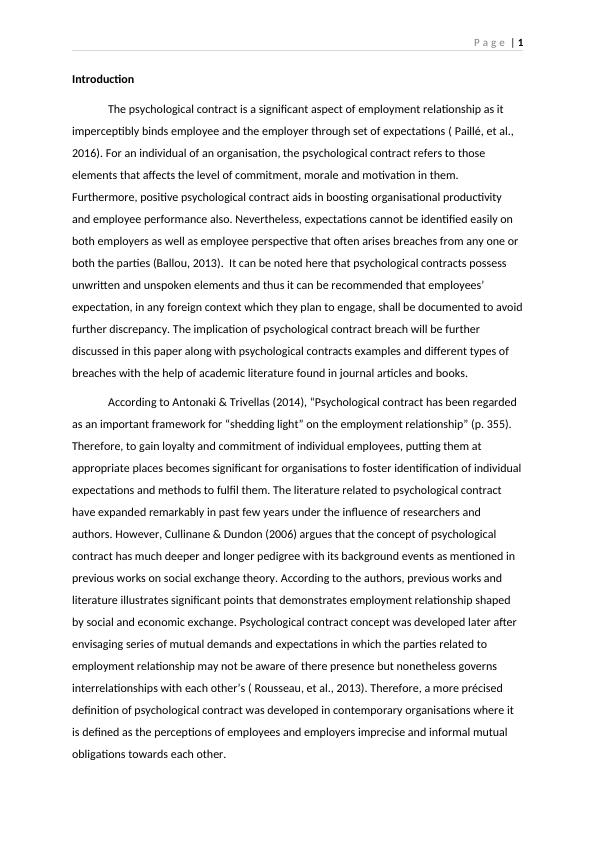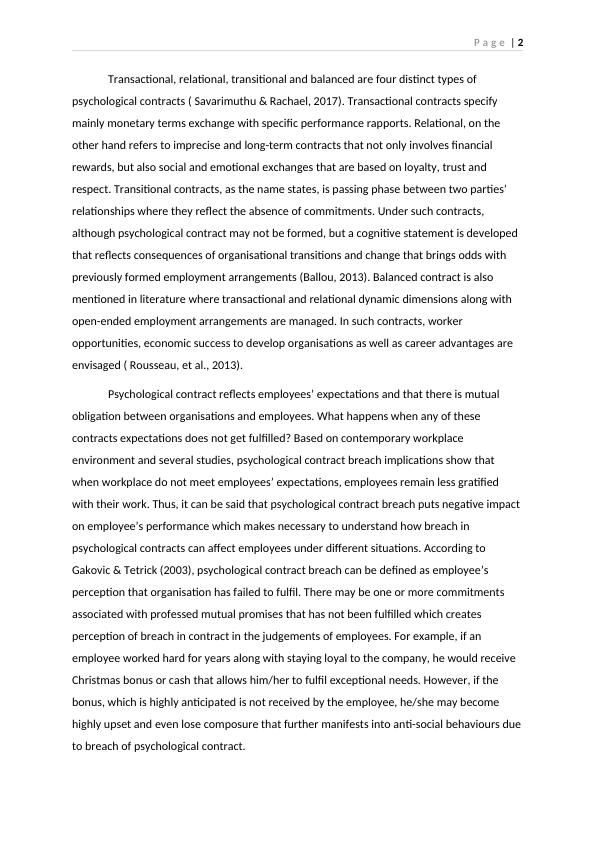Psychological Contract Breach and Its Implications on Employee Attitude and Behavioural Job Outcomes
8 Pages2268 Words469 Views
Added on 2023-06-05
About This Document
This paper explores the concept of psychological contract and its breach, and how it affects employee attitude and behavioural job outcomes. It also discusses different types of psychological contracts and their implications. The paper cites various academic literature to support its arguments.
Psychological Contract Breach and Its Implications on Employee Attitude and Behavioural Job Outcomes
Added on 2023-06-05
ShareRelated Documents
End of preview
Want to access all the pages? Upload your documents or become a member.
Psychological Contract
|6
|1332
|68
Impact of Owner-Manager Type of Control on Employee Commitment
|25
|6899
|14
Flexible Working & the Psychological Contract Report 2022
|8
|2004
|49
Leading and Managing People: Literature Review and Recommendations
|11
|1970
|357
Introduction to Human Resource Management & Learning and Talent Development Assessment 2020
|8
|2145
|37
Increasing Employee Outcomes Using Reflection
|4
|550
|84



